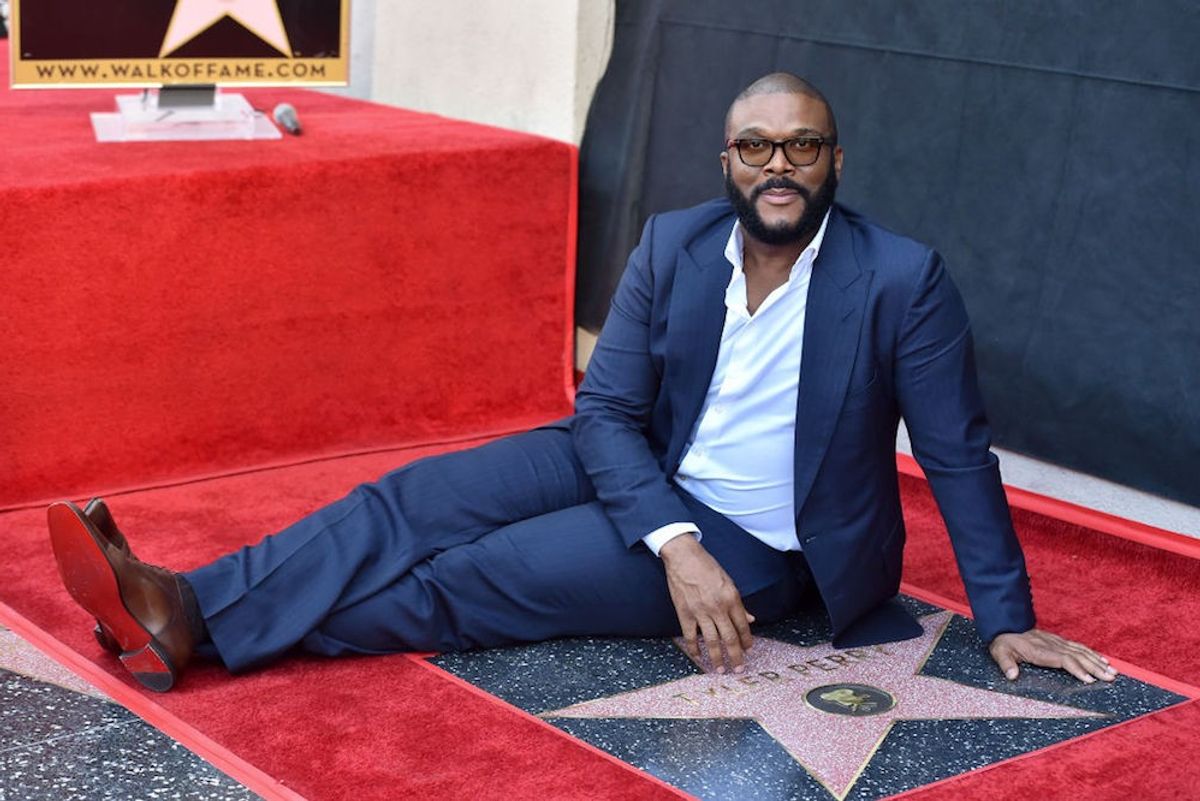
Tyler Perry Honored With Star On Hollywood Walk Of Fame
Photo Credit: Axelle/Bauer-Griffin/FilmMagic
To continue reading
Create a free account or sign in to unlock more free articles.
By continuing, you agree to the Terms of Service and acknowledge our Privacy Policy
Register
The content is free, but you must be subscribed to Okayplayer to continue reading.
THANK YOU FOR SUBSCRIBING
Join our newsletter family to stay tapped into the latest in Hip Hop culture!
Login
To continue reading login to your account.
Forgot your password?
Please enter the email address you use for your account so we can send you a link to reset your password:

As a writer, collaboration isn't something that always comes naturally. The first time I was asked to write a story with someone, it was with my best friend for a writing exercise in high school. We clashed when it came to plotlines. I was into romance and she was very much into science fiction. Nevertheless, we managed to pull out a story that fit a single theme derived from both our lived experiences as young Black women. Collaboration is important. Someone send a memo to Tyler Perry.
Many Tyler Perry fans were shocked — some unsurprised — to find out that the multihyphenate has been the sole writer for all of his scripts. From OWN's The Haves and the Have Nots to an upcoming Tyler Perry’s House of Payne reboot, Perry explained, via Instagram and Twitter, that he writes all of his own work.
“I have no writer’s room. Nobody writes any of my work. I write it all,” Perry said in the short video clip. The point of the post? According to Perry, it was to showcase the importance of “work ethic.”
The revelation had some Twitter users giving Perry his props, but, on the other hand, some Tyler Perry content consumers found the news validating. Perry’s work has often been critiqued for its lack of perspective for other Black stories that don’t center themes of a struggle and abuse of Black women. And with his viral admission, it puts a lot of his work into perspective for viewers, like me, who don’t relate to most of his work. (I, personally, have only watched the non-Madea Tyler Perry movies.)
\u201cCute flex. But what this really confirms is that he\u2019s unequivocally responsible for what many perceive as poorly written, problematic, and colorist narratives centering Black women. Hate to see it!\u201d— Tre'vell Anderson (@Tre'vell Anderson) 1578337623
\u201cTyler Perry didn\u2019t need to announce he doesn\u2019t use writers for me to know. It\u2019s very clear from his body of work that he\u2019s working with limited creative economy dfghhjhggjhggghgg\u201d— D M (@D M) 1578355137
In Perry’s video, script titles like Sistas, Young Dylan, and a show called Bruh are shown. But with titles like these that presumably have to do with being a Black woman or being young, it's odd that Perry, a 50-year-old man, would consider only himself to spearhead storylines such as these.
According to his site, Perry, like many, was inspired by watching Oprah Winfrey. “From a young age, Tyler learned to write down his daily thoughts and experiences in a series of soul-searching letters to himself,” the page states. After Perry wrote these letters, it became his first successful play, I Know I’ve Been Changed. Released in 1992, the play showcased instances of rape and abuse and featured religion as a central theme.
Since then, Perry went on to create the Madea character and franchise which has grossed more than $500 million but which has been often critiqued for stereotyping Black women. Critics have noticed that, because of this character and franchise, his work relates to an older demographic of Black people that still invest in Perry’s content.
The fact is, there’s a lot of Black talent out there who want to write for TV. While we have inclusive reboots that have aired, like Charmed, The Heathers, and whisperings of a “richly diverse” Buffy reboot, Black people of all ages, complexions, genders, and abilities deserve their own stories told, too. And for Hollywood to even have reboots without telling those undiscovered original stories is what’s lacking in both network TV and streaming service content overall.
This what may be the most baffling part of Perry’s visual example of "work ethic:" it spits in the face of his own production studio — which owns the biggest studio lot in America. In 2015, Perry bought his 350-acre plot in the Black Mecca that is Atlanta, making him the first Black person to fully own a studio. On Oct. 5, 2019, Perry had the grand opening of the studio where movies like Black Panther, Bad Boys III, and Coming 2 America were filmed at.
There’s still plenty of room for Black stories because television and film are still overwhelmingly white. Though to some Perry super fans, it’s not fair to back Perry into a wall and force him to share his toys, ideas, or form a writer’s for his projects. But the markets for LGBTQ Black content, Black teen content, and even stories surrounding Black millennials are overwhelmingly bare. And if someone like Perry, with all of his power, influence, and creativity, isn’t checking to make sure those other Black stories are heard, then what is all of this history-making for?
Ultimately, Perry isn’t wrong. Showing off his many scripts that were written in a year does prove a certain work ethic. But if one’s work ethic comes at the cost of cutting out Black voices of newer generations — Blerds, dark-skinned Black women with happy endings — and becoming the gatekeeper in Blackface for up-and-comers, then what is that ethic really worth?
__
Ari Bines is a fashion and culture writer with a focus on representation, being Black AF, fat liberation and identity intersections.